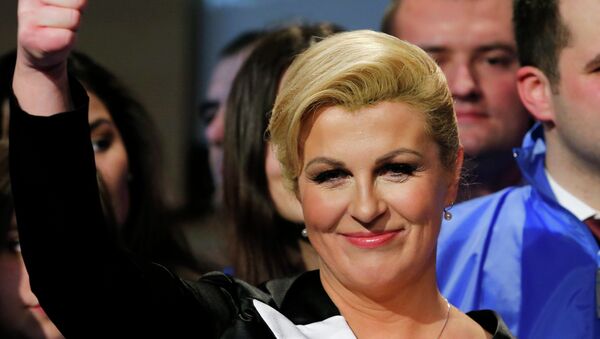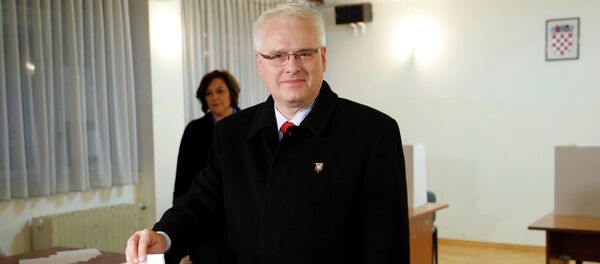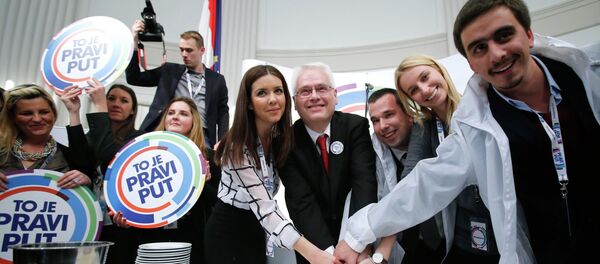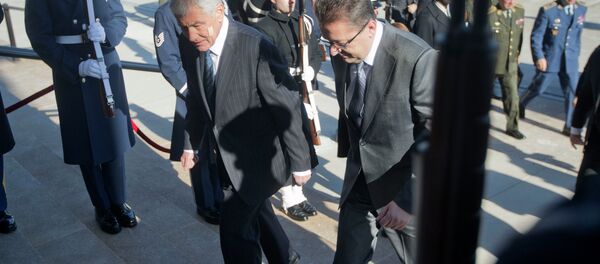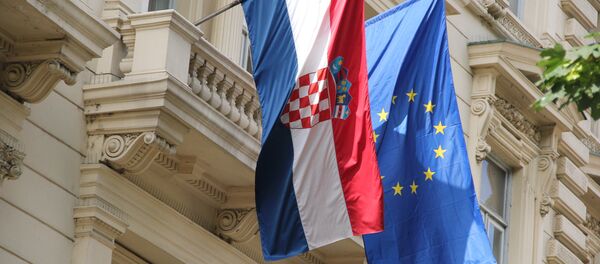For almost two millennia, Zagreb has existed under alliances with Roman, Byzantine, Hungarian, Venetian, Hungarian, and Yugoslavian leadership. During World War II, the Nazis and Axis powers created the Independent State of Croatia under the leadership of an Ustaše government led by Ante Pavelić.
Between 1941 and 1944, thirteen concentration camps were built to “cleanse” Croatia and assist the Nazi government in their Final Solution.
After the war, Yugoslavia was consolidated under Josep Broz Tito, and shattered again by civil war during the Milosevic government after the break up of the Soviet Union.
Tuđman founded the Croatian Democratic Union to consolidate Croatian nationalism into a political force which could push for not only an independent Croatia, but one free of the social influence of minority Serbians and Muslims.
Historian Martin Lee notes, “Tuđman emphasized the continuity between his government and the wartime Ustaše puppet state,” resurrecting symbols, the wartime currency, and the reputations of the fascist wartime leaders.
First on Tuđman’s list was Ante Pavelić, who led the Ustaše government with the support of the German Fuhrer. After the war, Pavelić fled to Argentina after the war where he lived with one of his lieutenants, Vinko Nikolić. In 1993, Nikolić was appointed to parliament by President Tuđman.
Authors James Ciment and Kenneth Hill note that Tuđman’s early campaigns were based on fanning racist resentment against Jews, Serbs, and Muosliems.
In 1994, with the help of the American intelligence and MPRI — a private American military training firm, Croatian nationalists massacred and displaced upwards of 700,000 of Krajina’s Serbian population, which had rebelled in response to the rise of fascist powers in Zagreb.
It was around this time that Ms. Grabar-Kitarović began her rise in the Croatian government. After graduating from an American high school in 1992, Grabar-Kitarović dedicated her career to integrating a newly independent Croatia into the structures of western military and finance capital.
In 1992, her first role was as an assistant in the Department for International Cooperation of the Ministry of Science and Technology. After completing her degree in 1993, she became an adviser, and then Senior Adviser, to Deputy Foreign Minister Ivo Sanader, who took over leadership of the Croatian Democratic Union following Tuđman’s death in 2000.
While it is certainly possible that a youthful Grabar-Kitarović was not aware of her party’s role during World War II, she certainly supported an aggressive military civil war against the Serbian population of Croatia.
From 1995 to 1997, Grabar-Kitarović served as head of North American relations in the Croatian Foreign Minister, and from 1997-2000 served at the Croatian Embassy in Ottawa. The Canadian Air Force contributed eighteen CF-18 Hornets to the NATO intervention in Kosovo.
Following their decisive victory and the splintering of Balkan power along ethnic lines, NATO began integrating Croatia with a Partnership for Peace plan in 2000, as Grabar-Kitarović returned from a two-year Fulbright Fellowship at George Washington University to become Minister Counselor at the Ministry of Foreign Affairs and then Secretary General for European Integration in 2003 and Minister for Foreign Affairs and European Integration in 2005.
Josipovic, and his Prime Minister Zoran Milanović (who was Croatia’s representative to NATO during the 1998 bombing) happily complied with the EU’s economic agenda of deficit reduction through austerity and weakened labor protections. As was obvious at the time, austerity did nothing for the unemployment crisis.
With economic backlash against the center-left President funneled into the support of center-right parties, NATO successfully transformed Croatia from a non-aligned state into one that submitteds to the will of European finance.
Croatia is still a deeply divided nation with little prospect for escaping economic austerity and falling oil prices, as Croatia’s top imports and exports are both petroleum related products. Ms. Grabar-Kitarović’s must explain to the economically distressed nation why their status as a western military installation necessitates further austerity.
This new stage of NATO’s aggressive Balkan experiment raises tensions in an environment filled with violent nationalists, eager to relive their World War II glory which ended with their defeat by Russia and her western allies. Economic turmoil and the opportunity for foreign investors to extract value from the distressed population only increases the desire to aggressively push east into new markets and cooperate with the aggressive political agenda of the US, regardless of the human cost.
The views expressed in this article are solely those of the author and do not reflect the official position of Sputnik.
